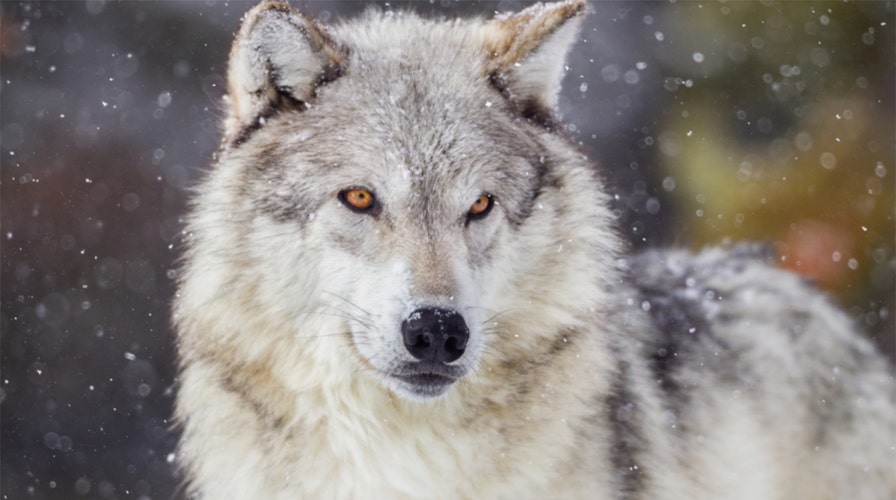Fox News Flash top headlines for February 26
Fox News Flash top headlines are here. Check out what's clicking on Foxnews.com.
The results are in — and Wisconsin wolf hunters overshot their target by more than 80%.
Wisconsin’s recent wolf hunt, the state’s first in seven years, ended early on Wednesday after the state’s Department of Natural Resources (DNR) determined that 69% of the state’s 119-wolf quota had been harvested in just two days. But hunters and trappers out in the field were allowed a grace period of 24-hours, effectively extending the hunt through the following afternoon.
As of 3 p.m. on Thursday, the Wisconsin DNR confirmed that quotas had been exceeded in all six hunting zones, for a total of 216 wolves taken — a number far exceeding the 119 limit originally set by the DNR.
WISCONSIN WOLF HUNT ENDS EARLY AFTER HUNTERS KILL 69% OF QUOTA IN TWO DAYS
"It’s easy at this point in the game to say, yeah, maybe we should have closed it a little bit sooner," said DNR Wildlife Management Director Eric Lobner at a Thursday news conference. "There were so many unknowns about how the season was going to play out… How far we went over goal was not necessarily our objective."

As of 3 p.m. on Thursday, the Wisconsin DNR confirmed that quotas had been exceeded in all six hunting zones, for a total of 216 wolves taken — a number far exceeding the 119 limit originally set by the DNR. (iStock)
Officials say fresh snowfall on the first few days of the hunt aided hunters in tracking the wolves, as did hunting dogs — which accompanied approximately 90% of the successful hunters. The special hunt was a desirable one for outdoor enthusiasts in the area, too. The DNR was reportedly flooded with over 27,151 applications, with only 2,380 permits available.
CLICK HERE TO SIGN UP FOR OUR LIFESTYLE NEWSLETTER
Wolf hunters in Wisconsin had been waiting seven years for this hunt, too. Gray wolves were listed as an endangered species prior to Jan. 4, when they were removed from the list by the Trump administration and population management rights were returned to the state. Wisconsin mandates that the DNR open a wolf hunt from early November to late February when gray wolves are no longer listed as endangered or threatened.
DNR officials had planned to wait until November to begin the hunt, but Republican lawmakers feared President Biden would relist the wolves as endangered before it could take place, the Associated Press reported. A hunting advocacy group called Hunter Nation later won a court order to open up Wisconsin’s wolf hunt in February.
FOLLOW US ON FACEBOOK FOR MORE FOX LIFESTYLE NEWS
Meanwhile, Wisconsin’s hunting advocates and conservationists were at odds over the hunt, with the former arguing that the wolf population was decimating farmers’ livestock, and the latter worrying that the gray wolf’s relatively small numbers (officials estimate there are roughly 1000 in the state) were already too small.
It’s possible that Thursday’s tally doesn’t encompass the total kill count of this year’s hunt, either. Wisconsin had allocated an additional 81 wolves to the Ojibwe Tribes within their Ceded Territory, in response to a declaration made by the tribes ahead of this year’s hunt. However, it’s possible the tribes had made the declaration without having any actual intent on killing the wolves, which the Ojibwe have historically held as sacred, the AP reported.
CLICK HERE TO GET THE FOX NEWS APP
A representative for the Wisconsin DNR was not immediately available to comment on plans for future hunts, although it's said the DNR is still moving forward with a wolf hunt in November if needed to control the population.
"The Wisconsin DNR has successfully managed gray wolves for decades and will continue to do so in accordance with the laws of our state and the best science available," the department writes on its website.
The Associated Press contributed to this report.
